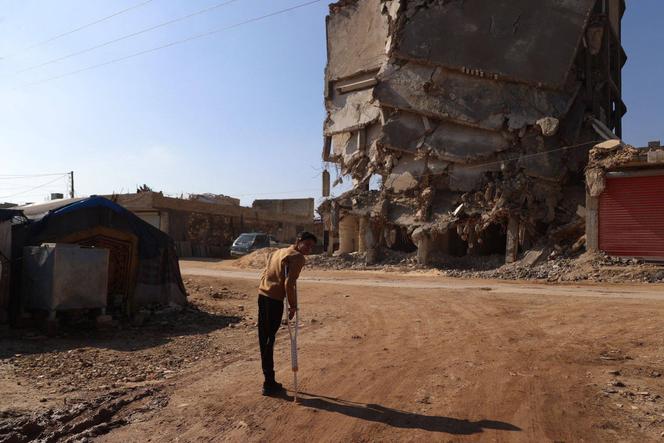


Noura has not forgotten the early hours of February 6, 2023. It was still dark when the young woman, her children, her husband and members of their family woke up "to the violent vibration of the building and the movement of the ground." Writing from the city of Idlib (northwest Syria), where she lives, she shared that "to this day, we still remember the sound of the earth rumbling, terrifying."
On this apocalyptic, freezing night, with heavy rain falling, Noura (she gave only her first name) and her family took refuge in a car. Shocked but unharmed, they soon discovered the scale of the tragedy: "Entire buildings had collapsed on their inhabitants, whole families had died." Noura's husband worked hard to help victims.
In rebel-controlled northwestern Syria, closest to the epicenter of the 7.8-magnitude earthquake in Turkey and its subsequent aftershocks, the disaster was most severe. More than 4,500 people were killed and over 10,000 were injured. At least 10,000 buildings were destroyed and many more were damaged. In this region, already weakened by years of bombardments from pro-regime forces, 265,000 people lost their homes, according to a United Nations figure.
A year on, the trauma is still deeply rooted in both Noura and her children: "We're afraid of another earthquake, of losing our loved ones," she said. We looked for a safer house, as ours had been damaged and was in danger of collapsing if there was another earthquake, but we couldn't find anything. We asked for help to reinforce the structure of our home, but without success. We had to save money to repair the damage ourselves," continued the mother of three.
Noura measures her fortune against those who were forced to take refuge in shelters, "and for whom aid was totally insufficient." Their tents have sometimes been damaged by the harsh winter. She described a deep sense of abandonment among the population of northwestern Syria. International funds, abundant in the first months after the earthquake, dried up once the emergency phase was over.
Data on the number of inhabitants who have been able to return to their homes is insufficient. "There are no statistics. Syrians are still being housed in camps set up after the earthquake," said Oussama Al-Hussein, coordinator of programs in Syria for the French health and solidarity NGO Mehad. In Jinderes, one of the worst-affected areas, there has been virtually no reconstruction, according to the Associated Press, and the ruins are still visible. In the northwest, support for damaged infrastructure has also fallen short of requirements.
You have 50% of this article left to read. The rest is for subscribers only.
